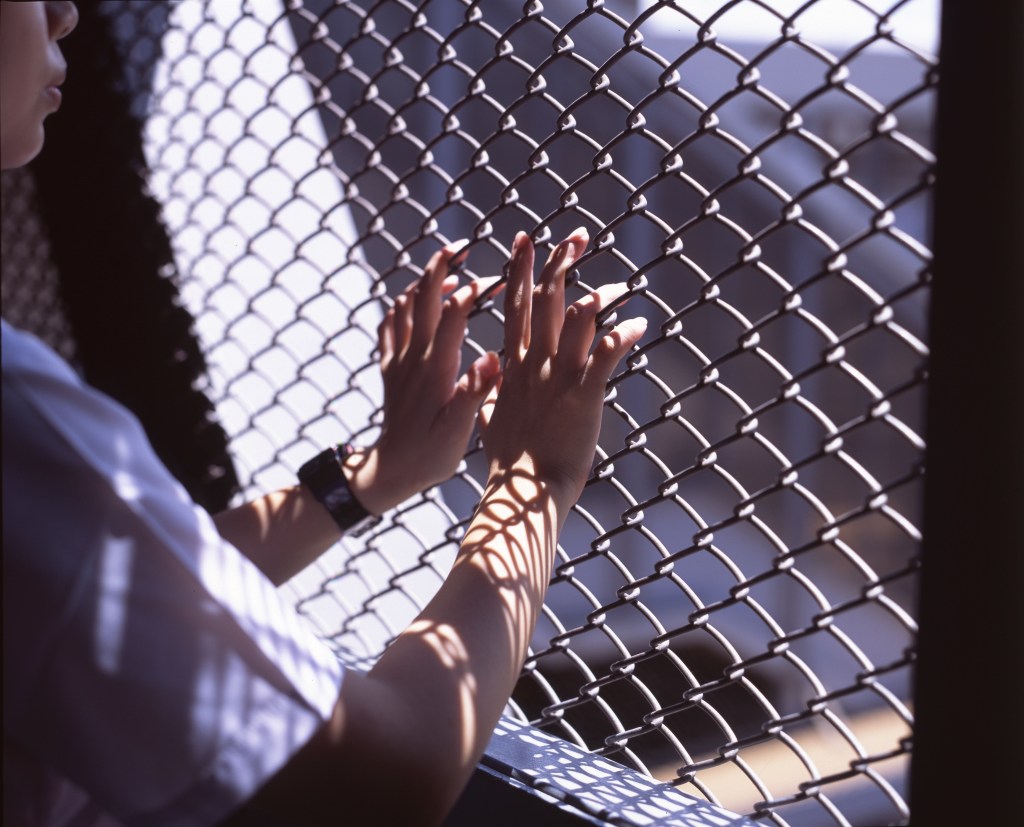When DeAnna Hoskins was incarcerated in 1999 in Ohio, a fellow inmate filed a lawsuit against Hamilton County to get an abortion. The inmate won her case and authorities were ultimately forced to accompany her to a clinic for the procedure.
It’s a scene Hoskins thought of when a Supreme Court draft opinion that would overturn Roe v. Wade, the 1973 Supreme Court decision that legalized abortion nationwide, was leaked last week.
Videos by VICE
“I wonder, 20 years after she was incarcerated, how would her life have been different had she been forced to have the kid?” said Hoskins, now an advocate for incarcerated women and the president of JustLeadershipUSA, a nonprofit that supports those who experience racism in the criminal justice system.
“She fought to get [the abortion] and I think about that today. That ability to fight is going to be snatched.”
Every year, about 55,000 newly pregnant women end up incarcerated in jails and prisons in the U.S. Another study found that in the U.S. about 4 percent of all newly incarcerated women are pregnant. The fall of Roe threatens to further strip away the few rights they have, advocates say.
“Whatever slivers of rights the women on the outside have, the women on the inside only have a fraction of that,” said Lauren Johnson, an advocate who was formerly incarcerated herself.
As of 2018, the U.S. had the highest rate of incarcerated women in the world: only 4 percent of the world’s female population lives in the country, yet it boasts more than 30 percent of the world’s incarcerated women, according to the Prison Policy Initiative. Sexual and reproductive healthcare is notoriously inadequate: Many women can’t access menstrual products in jails and prisons—let alone abortions, which they often have to pay for themselves.
In 2003, Johnson learned she was pregnant two days before she had to go to a Texas county jail for substance abuse. When she asked if abortion was an option, she was told she’d have to pay for the procedure as well as transportation to and from a clinic and security to accompany her. Johnson ended up having her baby, but she said she was lucky because she had family support outside of prison.
“Abortions were already out of reach financially for a lot of people in the first place,” Johnson told VICE News.
Low-income people are much more likely to be incarcerated. In 2014, nearly three-quarters of incarcerated women made less than $22,500 before they were imprisoned.
Even if they can afford an abortion, incarcerated people can’t travel freely—out of state or out of the country—to access a legal abortion if they find themselves in one of the 26 states waging a war on abortion, Hoskins said.
“If [Roe] is overturned that means that prisons and jails are going to follow the law, and if you’re in prison or jail in a state that prohibits abortion, they’re not going to transfer you to a state to have abortion performed somewhere else,” Hoskins said.
It’s a reality that will disproportionately harm people of color, who are overrepresented in jails and prisons. Black people are five times more likely to end up incarcerated than white folks, according to the Sentencing Project.
“Most marginalized communities are going to be criminalized for getting rid of unwanted pregnancies,” Hoskins said. VICE News previously reported how the fall of Roe will give authorities yet another avenue to target, surveil, and criminalize Black and brown pregnant people.
Johnson called her own experience a “success story,” because she had an aunt who was able to take care of her son until she got out of prison. Today, her son lives with her and is about to graduate high school.
But across the country, states vary in how they treat women who give birth while incarcerated, a number that could rise if abortions are completely taken away as an option. Many are quickly separated from their newborns.
As Johnson put it, incarcerated women have minimal control over their lives, so Roe takes away the little bit of autonomy they may have left over their own bodies.
“Forcing a woman to give birth and then ripping that child away from her… You’re taking all of the choice about her future away in a place where you have almost no choice anyway,” said Johnson.
“You don’t come back from things like that very easily.”
Follow Anya Zoledziowski on Twitter.




